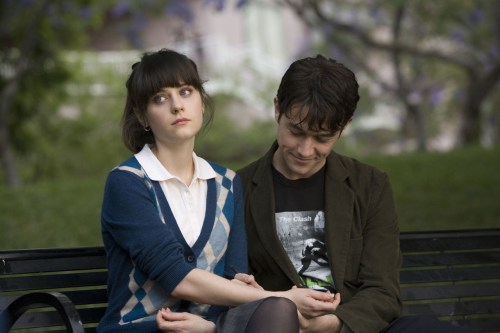
We’ve all been through it, so we all know there is no cure for a broken heart. Movies concerned with heartache often prove unsatisfying since the real causes for the breakup are somewhat neglected and swept away with a generic mantra about someone or something better coming along. So you don’t die of a broken heart. Usually you don’t.
In order to truly understand the hardships of going through a breakup, films that are not specifically about relationships sometimes offer a deeper insight into determining what could have gone wrong. More importantly, these films provide better therapeutic support since they expose the problems going on inside one’s head, and consequently locate the solution within. Themes such as denial, blame, self-doubt, self-analysis and never-ending suffering unfortunately run parallel with issues in a relationship.
The trend to show romance, whether that romance is successful or failed, has always reigned the movie world, from Hollywood classics to foreign films, and finally to creations of contemporary indie cinema. However, only few films give – either overtly or covertly – an authentic depiction of the inevitability of emotional pain, screaming, crying, destruction—the usual accompaniments to love.
On one hand, the following list exhibits the typical tales that show a failed relationship but also a hopeful promise in the end (but you are going to be deceived again anyway). On the other hand, it also includes films that acknowledge that a breakup or loss in general is a slow and tough process, dealing with acceptance and the need for transformation. Brace yourself, spoilers are coming!
15. How to Be Single (2016)
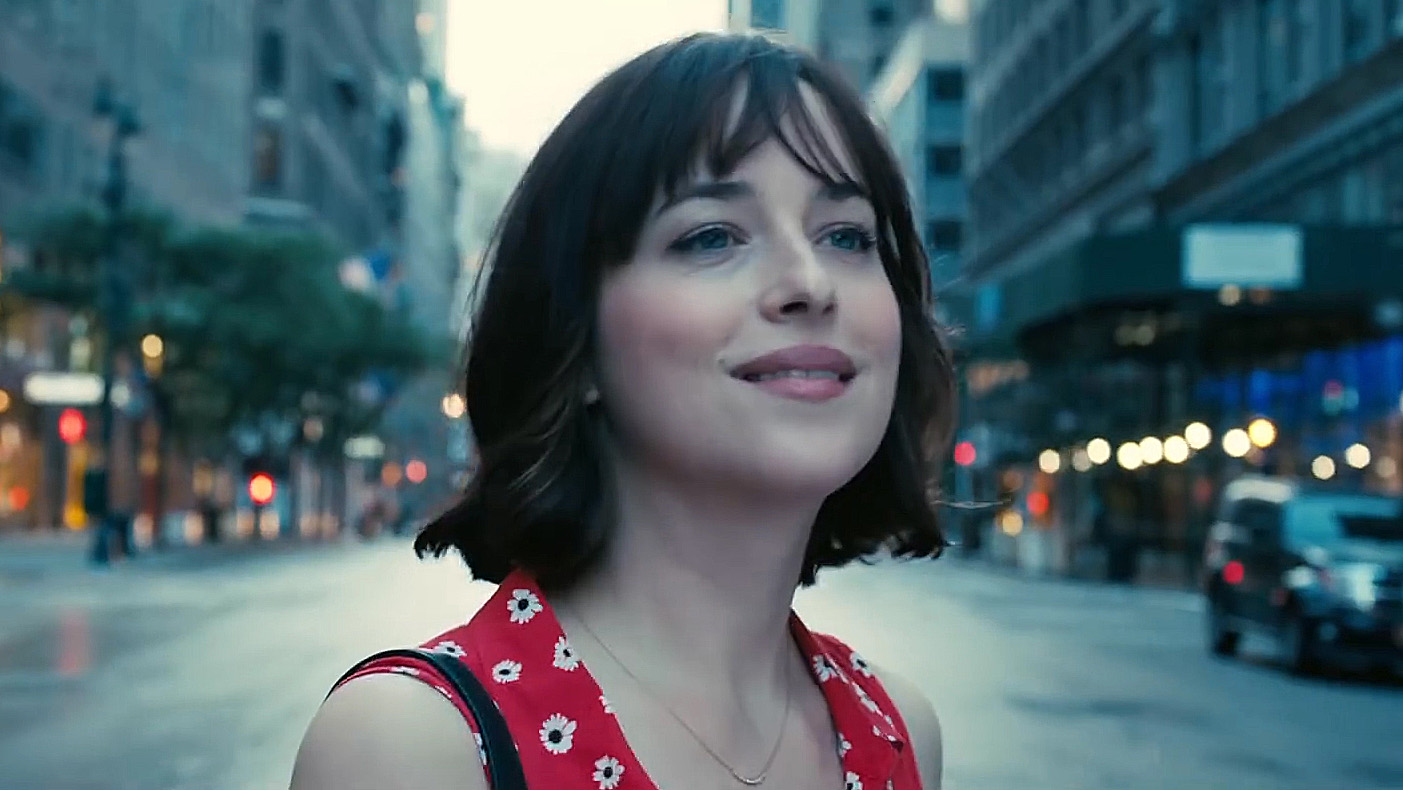
At first glance, this is just another comedy that refuses to over-dramatize failed relationships and presents the endless benefits of singlehood. “How to Be Single” is about various characters in New York City all coping with being single as best they can: by looking desperately for the perfect match, engaging in meaningless hookups, focusing on their career, or just indulging in unrestrained hedonism.
The plot circulates around Alice (Dakota Johnson), a young fresh-out-of-college graduate who, before starting an internship in the Big Apple, decides to break off her four-year relationship in order to gain more experience and freedom. By befriending Robin (Rebel Wilson), she soon discovers the advantages of a single life in the city of constant parties, one-night-stands and shopping sprees.
However, after a couple of brief attempts to create something meaningful, Alice comes to the realization that reaching her own goals proves more constructive than chasing men. Even though some of the lonely hearts in the film do end up in happy relationships, the ultimate problem of how no one is able to be alone anymore stares the audience into the face.
In the end, the film does not promise a new boyfriend, not even a new hopeful beginning, but rather a calm realization that being with oneself needs to be enjoyed to the fullest while possible.
14. Forgetting Sarah Marshall (2008)
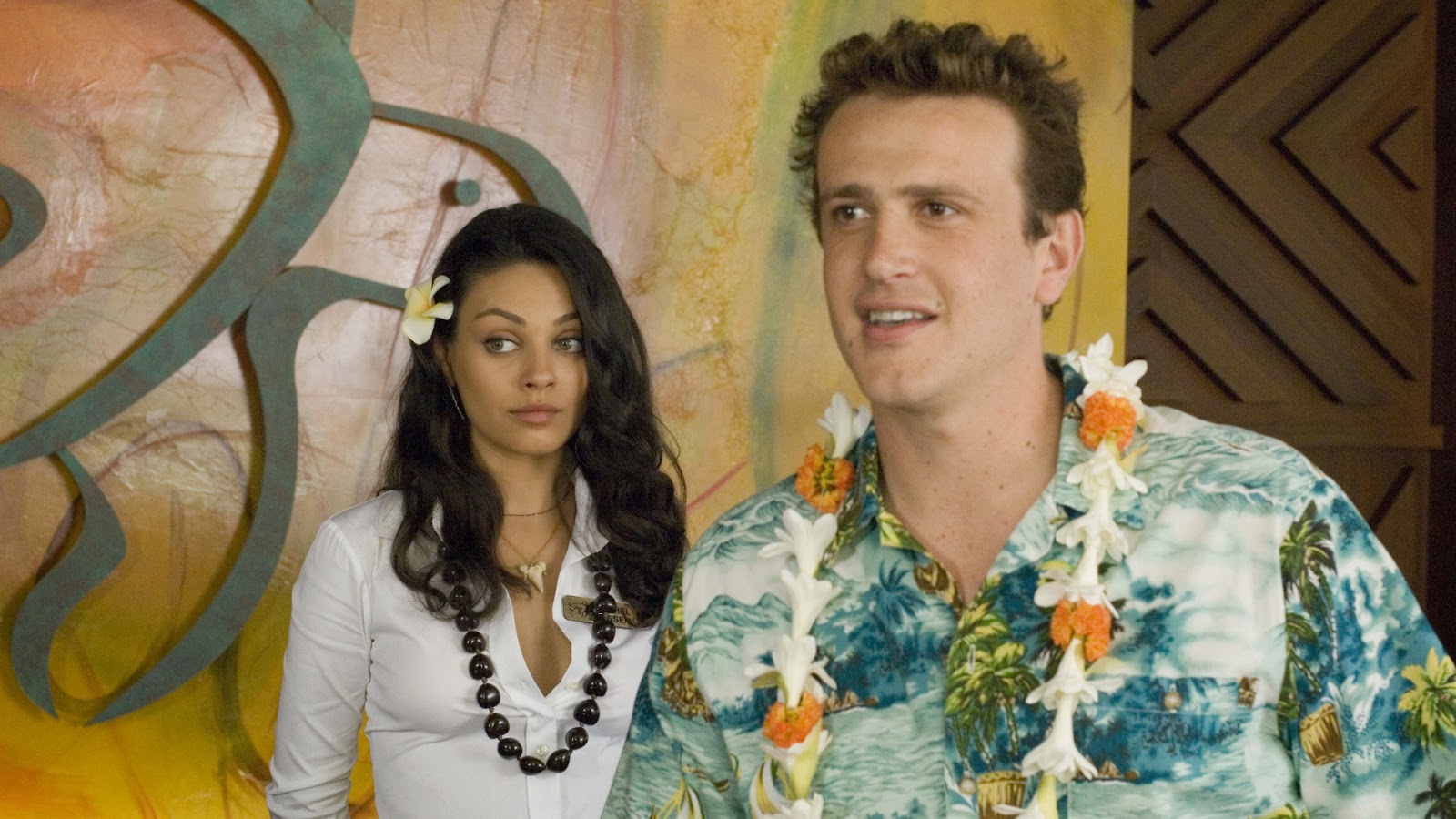
Written by and starring Jason Segel, “Forgetting Sarah Marshall” is the perfect funny way of approaching a heartbreaking story about a failed long-term relationship.
Peter (Jason Segel) is an unhappy music composer who gets dumped – while naked – by his successful TV star girlfriend, Sarah (Kristen Bell). After the usual quick fixes of having sex with as many women as possible, Peter decides to go on vacation to Hawaii in order escape the pain, but he ends up facing it directly.
By accident, he stays at the same hotel as his ex-girlfriend, who is now with her new, much sexier and much more popular boyfriend, Aldous Snow (Russell Brand), a notorious and promiscuous celebrity musician. It’s an obvious scenario for a disaster, yet Peter also meets new people to lift up his spirits. He goes on adventures, which will bring him out of his self-pity and force him to see the bad sides of Sarah as well.
Of course, the biggest help is Rachel (Mila Kunis), who will inspire Peter so much that he finally manages to produce his puppet Dracula musical, and she also evolves into a possible new girlfriend for him.
Showing the difficulties of getting over someone does not always have to be melodramatic, it can also take form of a refreshing comedy that will make one laugh about the phases usually people cry through.
13. Punch-Drunk Love (2002)
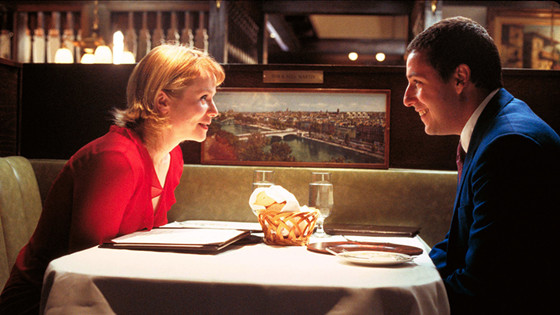
Paul Thomas Anderson’s awkward comedy “Punch-Drunk Love” follows the footpaths of a so-called quirky sensibility, throughout which the film is able to demonstrate a detached yet compassionate view on love.
Barry Egan (Adam Sandler) leads a depressed, solitary life; he is bullied by his seven sisters, has a boring job and lacks any normal human interaction. Suddenly, his life turns upside down, due to two completely unrelated events that will get him out of his stagnating existence. He meets Lena (Emily Watson), a similarly bizarre and reserved Englishwoman who is not afraid to show her affections toward him.
However, before the two can start a real relationship, Barry first needs to solve the other event haunting him throughout the plot. Out of sheer loneliness, he calls a phone-sex line. As luck would have it, he then gets blackmailed, but he musters up his courage and solves the situation by himself.
The film has nothing to do with a break-up, but such an unexpected happy ending for Barry builds up a support system for those who have completely given up on love. This offbeat movie is on one hand an allegorical superman tale; on the other hand, it’s a portrayal of a sad individual collecting pudding, and is a guarantee for a reassuring and a funny film experience.
12. The Darjeeling Limited (2007)
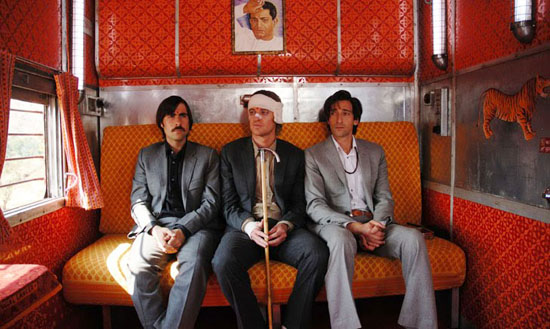
Like other Wes Anderson films, his fifth feature, “The Darjeeling Limited”, similarly portrays a plethora of control freaks and obsessive characters. The film is about the Whitman brothers (Owen Wilson, Adrien Brody, Jason Schwartzman), who embark on a spiritual journey to India in order to reconcile with their past trauma of losing their father, and to track down and confront their absent mother—all under duress.
Traditionally, in an Andersonesque manner, the visual aesthetics of the movie achieves at bringing out and exhibiting the inner neurotic reality of the characters. The symmetry, the abundance of objects, materials and rich textures, and a carefully detailed mise-en-scène of the movie, mirror the characters’ failed attempts to deal with their pain and loss in a superficial manner.
Rather than pursuing their inner peace, they use drugs and cling to objects rather than each other as brothers, because they are obviously still stuck in the past. Their quest suddenly gains meaning when they encounter death itself, which finally obliges them to let go of their destructive way of mourning and simply live their lives.
Even though the film does not deal explicitly with a romantic relationship, the characters’ difficulty at accepting their father’s death and their mother’s choices are parallel to that of accepting a relationship’s end. The brothers simply need to learn that there are things in life that cannot be controlled.
11. Frances Ha (2012)
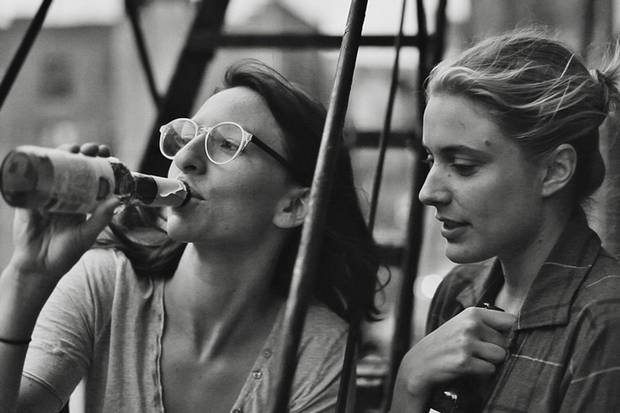
“Frances Ha”, written and directed by Noah Baumbach, and starring his muse as well as the co-writer for this feature, Greta Gerwig, is an iconic black and white indie film about nothing. Or at least it appears so.
The film follows the everyday life of Frances (Greta Gerwig), an idiosyncratic aspiring dancer in her late 20s who is still trying to “figure it out”. Losing her soul mate/flatmate is only one of the problems she needs to face in the adult life for which she is less than unprepared. All the people surrounding her are either in relationships, owning apartments, or having great careers, yet Frances is jobless and penniless – basically “undateable”.
Nothing seems to work out; even her spontaneous brief trip to Paris lacks purpose and eventually Frances has to return to her alma mater to take up a humiliating summer job. She stays true to herself, however, and manages to evolve into an inspiring character who is not afraid to follow her dreams at her own pace, eventually leading her to reconcile with her friend, choreograph a show, and find her own apartment.
Losing a soul mate can be sometimes more unbearable than experiencing a breakup, but this film ends on a positive note, forecasting that Frances finally comes to terms with the “serious” world around her.
10. Ruby Sparks (2012)
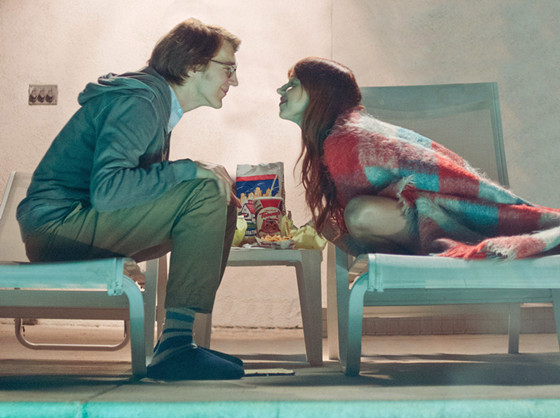
Calvin (Paul Dano), a young writer who already reached the peak of his carrier, is now suffering from a writer’s block as well as a “social-block”. This main character of “Ruby Sparks” is unable to maintain any kind of a human relationship, except with his brother, because he is terrified of not being loved for who he is.
Thanks to an assignment from his psychologist, he discovers the joys of writing once again and creates a literary character named Ruby Sparks. She is the fake fruit of Calvin’s imagination – a girl who will love him no matter what. However, one morning the imaginary becomes real when Ruby (Zoe Kazan) suddenly appears in his house.
Calvin, though skeptical in the beginning, decides to start living his life and experiencing the strong and romantic relationship with Ruby he so passionately wrote about. Once the ideal phase of their relationship begins to vanish, Calvin starts to manipulate Ruby since whatever he writes she does.
At the same time he realizes that forcing someone to stay with him is not exactly the happy relationship he wished for. Ultimately, Calvin first has to be in a relationship with himself – with his imagination – to then be able to safely create a connection with someone else, while acknowledging the possibility of that person leaving him one day.
Whether Ruby is real or not is not the question, but rather where does idealization, fear and insecurity lead? The film is an allegorical revelation of how a relationship is wished to function, but if it is controlled, then it will always remain in the realm of unreal.
9. Wild (2014)

Based on real events according the book written by Cheryl Strayed, “Wild” literally shows the hard and exhausting journey of regaining one’s strength and beliefs again.
After losing her mother (Laura Dern) – the love of her life – Cheryl (Reese Witherspoon) starts a reckless and self-destructive lifestyle, eventually leading her to lose everything: her husband, her money, her dignity, and her life. Having reached rock bottom, she decides to undertake the thousand-mile long Pacific Crest Trail.
The difficulties and various challenges that nearly ruin her run parallel with the flashbacks from her former life, marking the critical point of departure in her ambitious literature-driven life when her mother is suddenly diagnosed with cancer. Losing a toe, a shoe, not have anything to eat or drink for days yet still being able to finish the trail finally teaches Cheryl to be able to make peace with her loss and above all, to accept herself as she is, with all the mistakes that are now part of her life.
Although the failed marriage element is not the determining plot element, the film shows how even from the bleakest rock bottom, there is always a way up. Acceptance of a loss is sometimes even harder and longer than the Pacific Crest Trail.